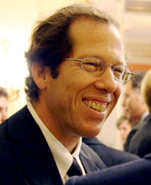This is the fifteen in the series of short statements from candidates in the forthcoming CODATA Elections. Paul Arthur Berkman is a new candidate for the CODATA Executive Committee as an Ordinary Member. He was nominated by the World Data System (WDS), International Society for Photogrammetry and Remote Sensing (ISPRS) and the Future Earth program of the International Council of Science.
Paul Arthur Berkman has been a contributor to CODATA since 2004 and served as co-chair for  the first SciDataCon. He is nominated by the World Data System (WDS), International Society for Photogrammetry and Remote Sensing (ISPRS) and the Future Earth program of the International Council of Science.
the first SciDataCon. He is nominated by the World Data System (WDS), International Society for Photogrammetry and Remote Sensing (ISPRS) and the Future Earth program of the International Council of Science.
KNOWLEDGE IS THE COMMON WEALTH OF HUMANITY. These words were shared during my first CODATA meeting (Berlin, 2004) and they resonate still as a responsibility to contribute to the world we live in. Data are at the base of the pyramid toward knowledge and wisdom, underlying the decisions we make for our global sustainability. This impression was reinforced during my time at the World Summit on the Information Society in Tunisia in 2005.
At the 2006 CODATA meeting in Beijing, it became apparent to me that data integration across the International Council for Science could be enhanced, especially with complementary bodies like CODATA and the system of World Data Centers that originated with the International Geophysical Year (now the World Data System – WDS). Nearly a decade later, I had the pleasure and honour to co-chair the scientific committee for the first International Conference for Data Sharing and Integration for Global Sustainability (SciDataCon) in New Delhi, forming an important bridge between CODATA and WDS.
As a member of the CODATA Executive Committee I will bring global insights from extensive experiences on all seven continents blended with interdisciplinary expertise ranging from oceanography to informatics and science diplomacy. These experiences include wintering in Antarctica, where I conducted SCUBA research with Scripps Institution of Oceanography at the age of 22, leading to a Visiting Professorship at the University of California Los Angeles where I taught Antarctic Marine Ecology and Policy the following year. This course eventually emerged into the Antarctic Treaty Searchable Database that was used by the Antarctica Treaty System for three years, leading to other information technology projects with federal agencies in the United States. As a Fulbright Distinguished Scholar at the University of Cambridge, I convened the first formal dialogue between NATO and Russia regarding security in the Arctic (reflected by Environmental Security in the Arctic Ocean, which has nearly 40,000 downloads), evolving further into international Arctic sustainability programs that I now coordinate through the Belmont Forum and International Institute for Applied Systems Analyses as Professor of Practice in Science Diplomacy at the Fletcher School of Law and Diplomacy at Tufts University.
Global issues of sustainability and data underlie my interest to contribute to CODATA. During my two-year term, I will focus on data-synthesis efficiencies to address global sustainability questions shared by the Future Earth program through the International Council of Science and the Sustainable Development Goals (SDG) program through the United Nations. Both of these decadal programs emerged in 2015 with global remits and there is opportunity to create synergies between them across the natural and social sciences, helping to balance environmental protection, economic prosperity and societal well-being in response to the urgencies of today and in view the needs of future generations. Data, especially satellite observations that provide synoptic coverage on a planetary scale, are fundamental to Future Earth and the SDG with their common goals of global sustainability.
I will serve as a focal point between the CODATA Executive Committee and the Data Task Force of Future Earth. I also will continue to create practical collaborations between CODATA and WDS, recognizing that our generation has unique capacity to leverage ‘big data’ solutions into transformative information-management and knowledge-discovery architectures. Most importantly, I will contribute passion, creativity and holistic integration skills with sense of responsibility as your representative on the CODATA Executive Committee.
